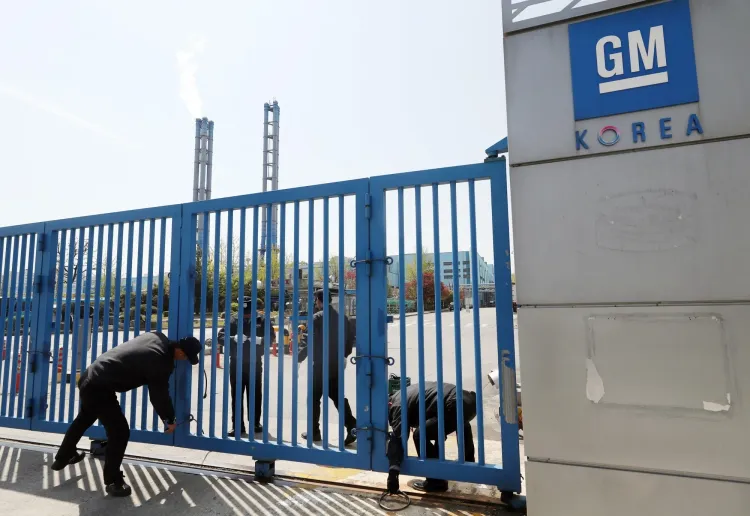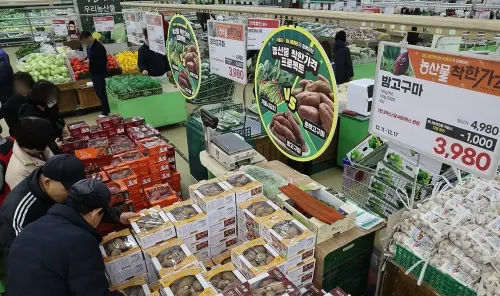Concerns Rise Over GM Korea's Future Amid US Auto Tariff Threat

Synopsis
Key Takeaways
- US imposes 25% tariffs on imports.
- GM Korea may consider relocating production.
- Company's history includes market exits due to costs.
- GM Korea employs around 11,000 workers.
- Majority of exports go to the US market.
Seoul, April 2 (NationPress) The United States' intention to implement 25 percent tariffs on imported automobiles starting this week has raised alarms regarding the long-term viability of GM Korea, the South Korean division of General Motors (GM). This has led to speculations about the company's possible exit from South Korea, according to industry analysts on Wednesday.
The headquarters of GM has stated that it is closely observing the tariff situation and may explore alternatives, such as relocating production, should the U.S. trade barriers remain, as reported by Yonhap news agency.
Given GM's previous history of withdrawing from markets due to rising costs -- including Australia, Indonesia, Thailand, and India -- observers are taking these signals seriously.
Established in 2002 when the U.S. automaker acquired a majority stake in the struggling Daewoo Motor, GM Korea was initially branded as GM Daewoo Auto & Technology before being renamed in 2011.
The company operates two manufacturing facilities in Incheon, located to the west of Seoul, and Changwon, approximately 300 kilometers southeast of the capital, along with a research and development subsidiary, employing around 11,000 workers collectively.
In 2019, GM closed its Gunsan plant in South Korea due to profitability challenges. The company's heavy dependence on the U.S. market contributes to its vulnerability, as GM Korea exports about 410,000 vehicles each year, with roughly 85 percent of those going to the U.S.
If the U.S. tariffs come into effect, GM Korea's diminished price competitiveness could render continued production in South Korea unsustainable.
According to Ki Pil-soo, an automotive professor at Daelim University, "GM Korea mainly manufactures two gasoline vehicle models for the U.S. market and, unlike Hyundai Motor Co. or Kia Corp., it does not enjoy the same level of support from the national government."
Kim further emphasized, "If tariffs are enacted, the firm may struggle to justify its production activities in South Korea."
Amid growing uncertainties, GM Korea's leadership and union representatives visited the U.S. last month for discussions with executives at GM's headquarters.
The talks reportedly centered on GM's global production strategy and upcoming vehicle plans.
The union has urged for the addition of new electric vehicle (EV) production lines at both the Incheon and Changwon facilities.










